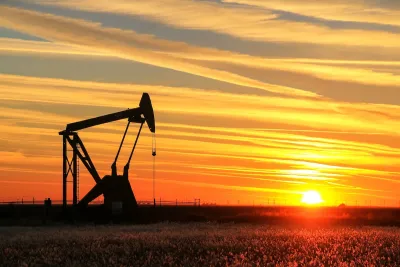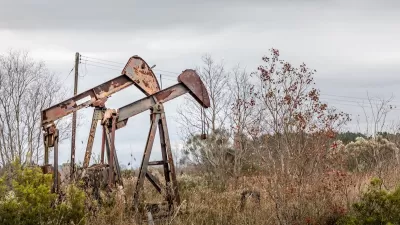Abandoned and orphaned oil wells in West Texas are causing costly environmental hazards like sinkholes and leaks, prompting urgent calls for increased funding and regulation to address a growing statewide and national crisis.

The Permian Basin in West Texas is facing growing environmental and public health hazards due to the increasing number of abandoned and improperly sealed oil wells. These aging wells, remnants of over a century of drilling activity, are now causing sinkholes, blowouts, and persistent leaks. One dramatic example is the Kelton Ranch sinkhole, a 200-foot cavity that emerged beneath a plugged well, symbolizing the latent dangers scattered across the region. As reported by Haley Zaremba, these incidents are part of a larger pattern of environmental degradation caused by decades of insufficient well closure and oversight.
The financial toll of addressing these emergency well failures is mounting rapidly. In recent years, blowouts have flooded lands and required costly and time-consuming repairs—such as the $2.5 million fix in Crane County following a blowout in 2023. In response to the crisis, the Texas Railroad Commission has requested a $100 million budget increase to tackle the issue, representing a 72% jump in plugging funds. The commission acknowledges that both the frequency and expense of emergency wells have surged, illustrating what the Houston Chronicle calls a “problem simmering beneath the surface.”
Compounding the crisis is the presence of over 2 million orphan wells nationwide—wells that were never sealed and for which no responsible party remains. These sites are leaking hazardous substances like methane and benzene into nearby communities, with taxpayers left footing the bill. A proposed bill in Texas seeks to plug 150,000 inactive wells and improve regulatory accountability, but it has faced resistance due to concerns from small operators about the financial strain. Without urgent action, the environmental risks and costs are poised to escalate, further endangering both human health and ecosystems.
FULL STORY: Abandoned Oil Wells Pose Growing Risks in Permian Basin

Florida Considers Legalizing ADUs
Current state law allows — but doesn’t require — cities to permit accessory dwelling units in single-family residential neighborhoods.

Manufactured Crisis: Losing the Nation’s Largest Source of Unsubsidized Affordable Housing
Manufactured housing communities have long been an affordable housing option for millions of people living in the U.S., but that affordability is disappearing rapidly. How did we get here?

Research Shows More Roads = More Driving
A national study shows, once again, that increasing road supply induces additional vehicle travel, particularly over the long run.

EV Chargers Now Outnumber Gas Pumps by Nearly 50% in California
Fast chargers still lag behind amidst rapid growth.

Affordable Housing Renovations Halt Mid-Air Amidst DOGE Clawbacks
HUD may rescind over a billion dollars earmarked for green building upgrades.

Has Anyone at USDOT Read Donald Shoup?
USDOT employees, who are required to go back to the office, will receive free parking at the agency’s D.C. offices — flying in the face of a growing research body that calls for pricing parking at its real value.
Urban Design for Planners 1: Software Tools
This six-course series explores essential urban design concepts using open source software and equips planners with the tools they need to participate fully in the urban design process.
Planning for Universal Design
Learn the tools for implementing Universal Design in planning regulations.
City of Moreno Valley
Institute for Housing and Urban Development Studies (IHS)
City of Grandview
Harvard GSD Executive Education
City of Piedmont, CA
NYU Wagner Graduate School of Public Service
City of Cambridge, Maryland





























